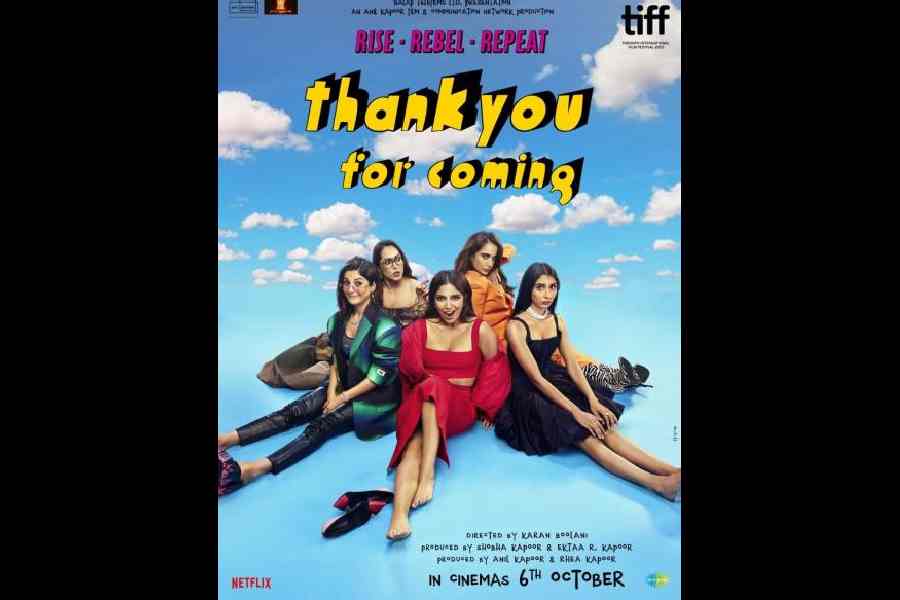Feminist rights, deserving love and seeking true happiness, are interlocking themes that jostle for space in Balaji Telefilms and Anil Kapoor Film Productions’ latest comedy outing Thank You for Coming. Starting off as a young woman’s quest for the fulfilment of sexual desires, this film meanders across various terrains, is caught in the ebb and flow of social melodrama and carries along with it sundry payloads of worldly-wise advice, responsibilities and more, to finally reach the journey’s end at an unexpected destination.
It all begins with Kanika Kapoor’s (Bhumi Pednekar) memories of her troubled childhood in which she was constantly made fun of or abused by her peers. She grows up to be a smart, beautiful and independent woman but is unable to shake off the trauma of her past. She seeks validation from men, is involved in a string of affairs but is unable to experience an orgasm, which, to her, is awfully important.
Belonging to posh Delhi society, she is also a victim of the pressures and expectations of getting married, that too to the ‘right kind’ of person. She also believes that sexual satisfaction from the ‘perfect man’ will ultimately bring her happiness.
Confused, unsatisfied with her love life and desperately seeking love, Kanika is also tense about what men may think of her. Her anxiety to fit into the boundaries set by society makes it woefully clear how even educated urban Indian women define their life goals and choices from a patriarchal point of view. Her mother (Natasha Rastogi), though, is portrayed as completely unaffected by social dictums and is proud and happy to live life according to her own terms, though they may be frowned upon by a conservative society. Kanika’s friends Pallavi (Dolly Singh) and Tina (Shibani Bedi) act as foils to her and each other. Whereas Tina is a single mother who runs a successful business, Pallavi is a wife who throttles her husband in her attempts to ‘reform’ him.
Yet Kanika’s girlfriends are her real anchors who keep her ship steady during turbulent times and despite the misunderstandings toward the end when their friendship is all but wrecked, this film is a celebration of the bonding between girlfriends. While the men in her life may come and go, it’s the women who always have her back, be it her girlfriends, her grandmother or even her mother, with whom her relationship is initially somewhat strained.
Another endearing relationship is that between Kanika and Rubeya, her friend Tina’s teenage daughter. Though conflicted in her own mind, Kanika’s advice to her at various stages of the latter’s romance with a boy in her school gives out strong messages to all young women to not repress their feelings, never succumb to pressure and, at the same time, to be ready and confident before taking any big step.
In another thumbs up to woman power, the film clearly supports a woman’s right to sexual pleasure, also smashing patriarchal prototypes in a scene where teenage girls, as well as boys, give voice to their opinions and choices that go against its unwritten rules.
After nearly two hours of running time in which we share Kanika’s journey through her many miserable birthday parties, her failed relationships and an extravagant engagement that predictably ends in disaster, what the film really conveys is that there is no fixed recipe for happiness. Instead of wasting our lives trying to tear off the false and often harsh labels that others have stuck on us, it is important to be kind, sensitive and respectful and define our own happiness in the way that we think is best.
Which is your favourite girl gang film? Tell t2@abp.in










